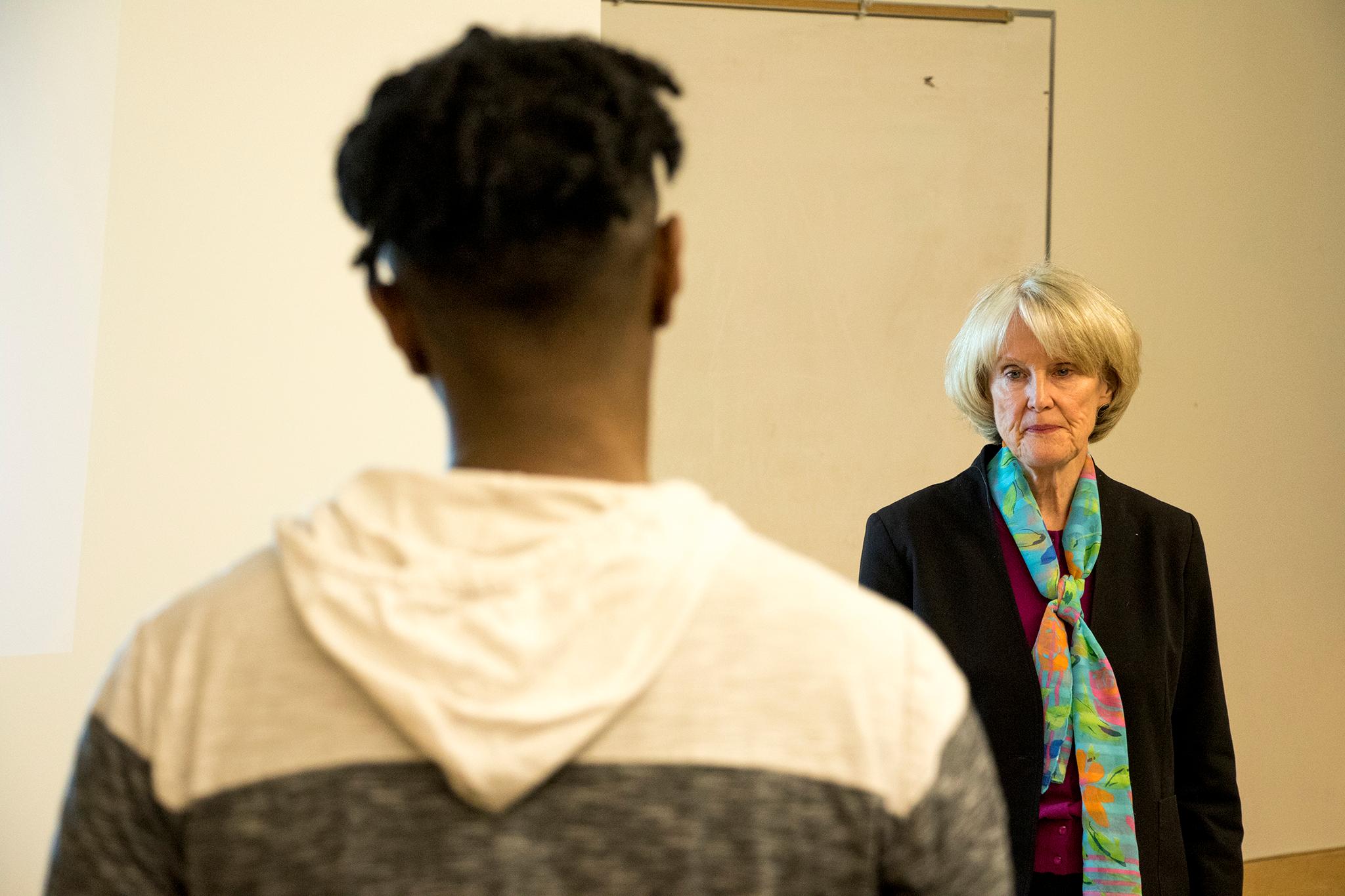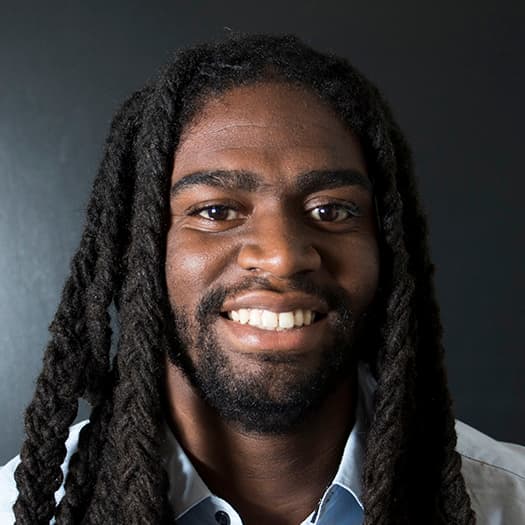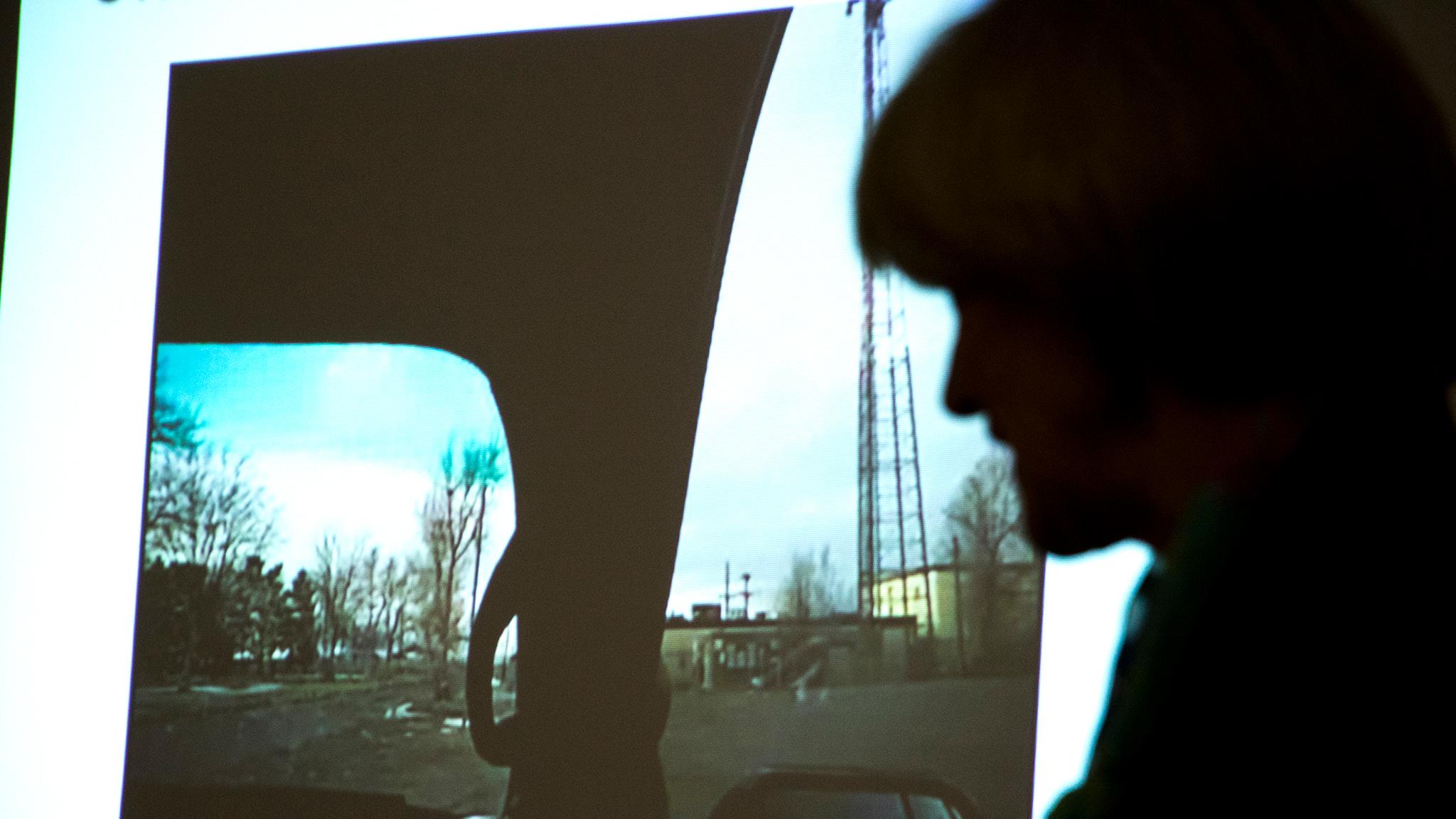When Beth McCann was campaigning to be elected as Denver’s district attorney in 2016, she promised that she would be available and transparent when she ruled on an officer-involved shooting that resulted in a fatality.
Last night she fulfilled that promise as she has before by appearing at the Central Park Recreation Center to present her reasoning and answer questions about her decision to not file charges against the officers that killed Stephen Nguyen and injured Rafael Landeros after a car chase that was triggered by a misidentification and that resulted in 48 shots being fired into the car.
Officers began to follow the vehicle after noticing what they believed to be suspicious activity involving Nguyen at the house of Mauricio Venzor-Gonzalez’s girlfriend. The man they were looking for, Venzor-Gonzalez, was an escaped convict who had previously attempted to kill a police officer.
There were three officers involved in the incident — Austin Barela, William Bohm and Susan Mercado fired 34, 12 and two shots into the car, respectively. Although there was a gun found in the vehicle, according to the decision letter, at no time did officers state that they saw a weapon being brandished. During the chase, the suspects threw something out the window that officers believed to be a weapon but that was later found to be a black box containing methamphetamine.
McCann said her decision not to file charges against these officers was primarily based on whether or not a jury would find these officers guilty. In this case, she didn’t believe that would be possible.
“It enters into what was going on in the officers' minds at the time the shooting occurred,” she said.
“It was my conclusion that a jury would not be able to convict beyond a reasonable doubt that these officers acted without lawful justification given the state of the law and so that's what I have to look at,” she added later in the discussion.
To begin the meeting, McCann narrated the encounter through the eyes of the officers and explained how their perspective — in conjunction with the way the law protects the actions of peace officers — made it unlikely for a jury to be able to find them guilty. She did note that although she did not perceive this to be a winnable criminal case, the family may find success in civil court, where the standard for the preponderance of evidence is a significantly lower bar.
In civil court, she said, lawyers could possibly win a case against the Denver Police Department by suing for damages, claiming that the officers used excessive force. She said that in cases where the family wants to pursue those possibilities, the district attorney’s office makes files available for their use.
Some community members felt that using the chances of winning a case to decide whether to pursue criminal charges was unsatisfactory reasoning.
"The decision being based on whether or not this is winnable in court as opposed to whether or not this was justice, that's deeply troubling to me because that tells me we don't share the same standard of justice as I would've hoped," Kamau Allen, a community organizer with Together Colorado, said.
"I wanted to share that because as a community we see something like this, we lose a community member or family member or a friend under circumstances like this, and because we have a different standard of justice, the trust that we have in the police dies, and because of the decision that was made, the trust that we have in your office also fades away."

McCann said one of her biggest concerns is the feeling of distrust between community members and law enforcement agencies, and she hopes to combat those sentiments by being personally available, accountable and making all of the files regarding the case accessible.
McCann said the investigation is thorough and that people can trust the process.
Several members of the audience questioned how there could possibly be an impartial investigation of an officer-involved shooting in Denver if it is conducted by other law enforcement agencies in the city. McCann explained that by law, the Denver Police Department has to work with another police department when investigating officer-involved shootings as a safeguard against bias.
The Denver Police Department currently partners with the Aurora Police Department for these situations.
McCann also believes that there is enough social distance between the homicide detectives and the patrol officers to avoid a conflict of interest.
She said she believes that the Denver homicide department is the best investigative body in the state, and attempted to reassure those in attendance that the investigation is trustworthy and impartial by explaining the process that takes place after the shooting, step by step. She said that things like separating the officers immediately, not allowing them to see their body camera footage and the way detectives question officers foster an impartial process that Denverites can trust.
"Having observed a number of these, they are handled objectively, I think, by the police department," McCann said.
Trust is especially difficult to establish in this case as some aspects of the body-camera footage, in the eyes of several community members, appear to deviate from the account of the encounter given by officers in their interviews. For instance, a woman who identified herself only as Stephanie and someone close to members of Nguyen's family, noted that for a split-second before officers began firing it appears Nguyen’s hands are raised.
This deviates from the officer's account, which McCann agreed with, that the men refused to comply with the officers' commands.
"What we see is the [officer on the driver's side], he's getting close to the car about to open Stephen's door, 'cause from what it looks like Stephen put his hands up, and the driver, the police driver [Officer Bohm], is approaching the door and you can tell he wants to open but then he hears gunshots," Stephanie pointed out.
McCann did not believe that was clearly visible based on the footage, and more importantly, she said, she thought officers could have reasonably not believed that was the case during the encounter.
There is also a substantial amount of attention being paid to the account from Barela, who was on the passenger side of the car. According to the statements in McCann’s decision letter, Barela opens fire initially under the assumption that he is in imminent danger because the suspect, who he believes to be armed and dangerous, is about to open the door and shoot at the officers. In the video, however, the door does not appear to open and during his questioning, Landeros, the young man that survived the shootings, said Nguyen reached over him in an attempt to get out of the passenger side door but was unsuccessful.
This is where McCann’s view of what is going on in the minds of the officers is crucial. In her determination, a jury would find the officers actions reasonable based on the law regarding the use-of-force standards for peace officers. The law is clear in giving peace officers the authority to use force if they believe an armed and dangerous suspect is threatening the lives of others or using a deadly weapon to escape law enforcement. At one point during the video, the car does creep forward and several of the officers involved said they believed the suspects were trying to escape.
McCann also noted that there was no evidence that officers acted out of aggression because the man suspected of being in the car was an attempted murderer of a police officer. She said only one of the officers knew at the time that Venzor-Gonzalez had attempted to kill an officer while the other two officers just knew he was a murder suspect.
Although the number of shots fired seemed excessive to many, McCann made it clear that there is no specific window of time in which officers are considered justified. She said it's not as if officers are justified when they begin to shoot but lose that justification as they continue to shoot. In this case, she said, officers reasonably believed there was an imminent threat and thus their actions were reasonable based upon the wording of the law. She also emphasized the fact that Nguyen had just led officers on a high-speed chase through a populated area and officers felt sure that Venor-Gonzalez was in the car.
The end of the district attorney's investigation does not mean the officers involved will not be disciplined.
McCann said that under the new leadership of Denver Police Chief Paul Pazen, the department is headed in a progressive direction and has recently worked very hard to change its policies to promote de-escalation tactics and avoid situations like this. She said she hopes the Denver Police Department takes a hard look at this, especially the misidentification that triggered the whole encounter.
"The police department takes this very seriously. They do not want to shoot people and they have changed a lot of their procedures and training because of some of these situations in the past. They are held accountable and officers that get involved in these situations are sometimes disciplined," McCann said.
At a press conference in October where the body-camera footage of the shooting was released, Pazen said that although the district attorney’s office had concluded its investigation, his investigation was just beginning. As of two days ago, DPD said their investigation is still ongoing.
McCann noted that as soon as officers are involved an incident like this, they are put on desk duty until her decision comes in, and Pazen is working on making officers go through a wellness program before they return to duty.
Denver’s local Black Lives Matter Chapter sent a statement to Denverite asserting that as long as policing practices remain the same, incidents like this will be a continual occurrence: "As long as officers will be over policing our communities, shootings will be justified because of their explicit and implicit biases telling them to criminalize and fear Black and Brown skin."
Although McCann struggled with the case, she is comfortable with her decision — so much so, in fact, that she didn’t send it out for independent review as she has done in cases where she felt uncertain.
She said that it would be very difficult to see changes in the law regarding the standards of behavior for peace officers, but that is where people would have to look in order to see a different outcome. In her two years as district attorney, McCann has handled nine fatal shootings and has not filed charges in any of them.













